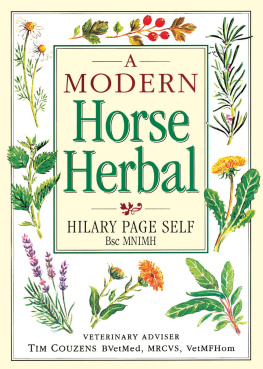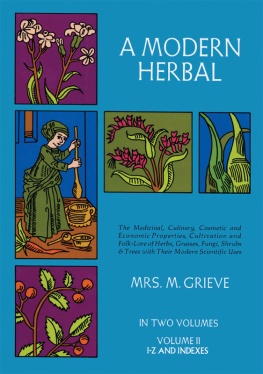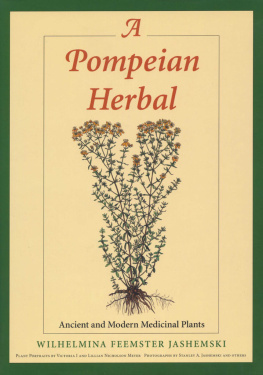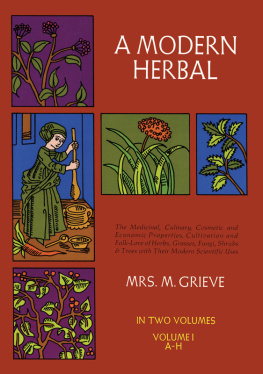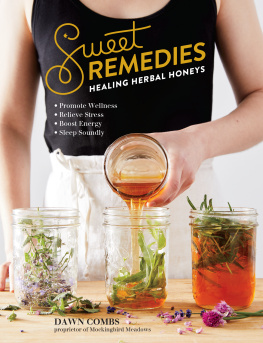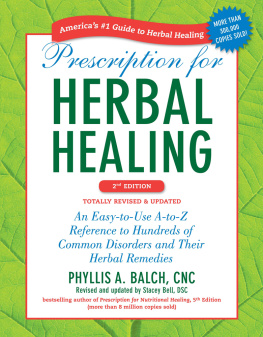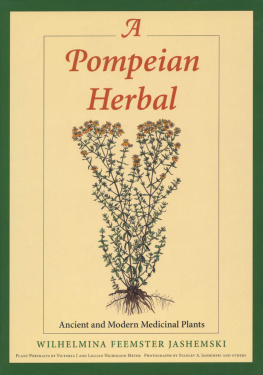Page Self - A Modern Horse Herbal
Here you can read online Page Self - A Modern Horse Herbal full text of the book (entire story) in english for free. Download pdf and epub, get meaning, cover and reviews about this ebook. City: Shrewsbury, year: 2019;2006, publisher: Lightning Source Inc.;Kenilworth Press, genre: Home and family. Description of the work, (preface) as well as reviews are available. Best literature library LitArk.com created for fans of good reading and offers a wide selection of genres:
Romance novel
Science fiction
Adventure
Detective
Science
History
Home and family
Prose
Art
Politics
Computer
Non-fiction
Religion
Business
Children
Humor
Choose a favorite category and find really read worthwhile books. Enjoy immersion in the world of imagination, feel the emotions of the characters or learn something new for yourself, make an fascinating discovery.
- Book:A Modern Horse Herbal
- Author:
- Publisher:Lightning Source Inc.;Kenilworth Press
- Genre:
- Year:2019;2006
- City:Shrewsbury
- Rating:5 / 5
- Favourites:Add to favourites
- Your mark:
- 100
- 1
- 2
- 3
- 4
- 5
A Modern Horse Herbal: summary, description and annotation
We offer to read an annotation, description, summary or preface (depends on what the author of the book "A Modern Horse Herbal" wrote himself). If you haven't found the necessary information about the book — write in the comments, we will try to find it.
A Modern Horse Herbal — read online for free the complete book (whole text) full work
Below is the text of the book, divided by pages. System saving the place of the last page read, allows you to conveniently read the book "A Modern Horse Herbal" online for free, without having to search again every time where you left off. Put a bookmark, and you can go to the page where you finished reading at any time.
Font size:
Interval:
Bookmark:
To Rags and Ryan the beginning
There is a unique link between herbs, healing and health. For this simple reason plant-based medicines have a traditional association with most world cultures. Much of the knowledge is laid down as folklore or documented in herbals, classical books detailing the medicinal properties of common plants used in herbal medicine.
Not surprisingly, frequent mention is made of treating domesticated animals, a natural step in view of the abundance of healing plants in our hedgerows. In the past the veterinary profession made good use of this knowledge, particularly in treating horses. Until the earlier part of this century, herbal remedies, including many common to modern herbalism, such as marshmallow and liquorice, formed the mainstay of equine veterinary treatment. This tradition continued until advances in modern medicine began to relegate herbal remedies to a state of obscurity and ridicule.
Today the art of using herbal remedies to treat horses is undergoing a triumphant revival, heralded by the growing interest in complementary therapies. This book is a celebration of those skills and symbolises the relationship between man, Natures pharmacy and the horse. It reflects the light of modern herbal medicine and seeks to re-establish links with the traditional herbal skills of the past.
In an age of advanced medical technology, this book serves as a timely reminder that Nature holds remarkable healing powers and can provide a simple solution to many of the health problems seen with increasing regularity in horses today.
Tim Couzens
BVetMed, MRCVS, VetMFHom
First and foremost my thanks go to all the animals I have had the pleasure and privilege to care for you have been my inspiration and my reward.
To Tony, my husband You can do it, Hils thanks for all your support and for giving me the time off to write this book.
Thanks to my family Anita, Clive and Liana for your enthusiasm, encouragement and, most of all, for believing in me. In particular, thank you, Mum, for your patient proof-reading.
To Tim Couzens, for writing the excellent section on homoeopathy, for checking the veterinary details, and for writing such a lovely foreword.
To Annie Dent, who provided the informative section on aromatherapy along with the authors photo thanks, Annie, for your friendship and advice.
To Ian Mole of Equine Marketing, for providing me with the excellent user friendly section on probiotics.
My very grateful thanks to Helen Leather for her permission to use the Cracker story, and to registered aromatherapist Caroline Ingraham for checking the aromatherapy details.
Thanks to William and Katrina Prull (the American Herbies) for helping me source the US research information and advising on US terminology.
Finally, a big thank you to Lesley Gowers of Kenilworth Press, who made me put thoughts into action your patience and enthusiasm have helped make this a very enjoyable period of my life.
Hilary Page Self
July 1996
Our ancestors discovered the rudiments of their folk medicine in the healing plants sought out by animals suffering from alimentary disturbances, fever and wounds. By observing how animals cure themselves from disease, they learned how to keep themselves healthy by Natures own methods.
Dr D.C. Jarvis (Folk Medicine)
Twentieth-century man has lost the sixth sense which allows him to know instinctively what is good for him. Mercifully, animals have not, and if returned to a more natural environment could fend for themselves very successfully. They would not be plagued with the ailments which domesticity, intensive farming and mans greed have created. Unfortunately the majority of our farm animals do not get the opportunity to exercise their instinctive knowledge, being kept in what can only be described as unnatural conditions, with little or no control over what they eat. Today, many farm animals such as cattle, pigs and hens are confined to housing which allows them little or no access to grassland and very often no natural sunlight; they are forced to stand on concrete floors and are crated in pens which restrict their movements. The resulting poor physical health, not to mention mental distress, is then treated with a cocktail of chemicals that subsequently enter the food chain, with all the future consequences that may entail.
Horses have fared better than the majority of farm animals, in that the place they fill in our lives is generally for pleasure rather than profit. They have retained the instinct to know what is good for them, but are often prevented from using it by being restricted at best to paddocks devoid of natural herbage, and at worse confined to stables for the majority of their working lives. One only has to see how well the British native ponies cope with hardship to appreciate how much goodness they take from the harsh landscapes in which they live. It is only when they are removed from these sparse conditions and introduced to herb-free, protein-rich paddocks that conditions such as laminitis and sweet itch arise. Long-term confinement in stables (for sweet-itch sufferers) or in starvation paddocks (for laminitic ponies), the common solutions for these conditions, subsequently create their own set of problems.
The role of the horse has changed dramatically in the last fifty years. Through selective breeding, the sports horse has been created. This animal now runs faster, and jumps higher and longer than his forbears. He is comparable with the modern-day athletes that we see breaking world records on race tracks around the world; unfortunately he is just as prone to injury!
Even if the horse is not being used in strenuous competition, he still has to cope with mental and physical pressures. Poor air quality and the breakdown of the ozone layer, which results in an increase in harmful ultra violet rays in the atmosphere, affects us all and does not leave the horse unscathed. Allergies, photosensitivity and respiratory conditions are now far more commonplace, resulting in a greater use of cortisone and other steroidal-based drugs. A series of studies carried out on racehorses over the past ten years both in America and Hong Kong have shown that as many as 80% of the horses examined, whilst in training, were found to be suffering from gastric ulceration. Although no singular cause for this ulceration was found during the studies, it was generally concluded that stress, insufficient fibre, incorrect feeding programmes, and the use of nonsteroidal anti-inflammatory drugs may contribute to the incidence of gastric ulceration. Interestingly, in the Hong Kong studies the incidence of ulceration drops to 50% in horses who have retired from training for a month or more. I leave you to draw your own conclusions.
Science now plays a greater role in the control of our animal feeds and the drugs that we use to enhance their performance. Stresses placed on our horses, not only by their training but also by the way in which they are kept, have produced new problems which did not exist twenty years ago. Unfortunately it has also produced an even greater reliance on the quick fix approach.
One cannot deny the benefits of conventional medicine, particularly in life-threatening conditions, but now, more than ever, there is a need to look back to the benefits that herbs can have on the animals in our care. Herbal medicine can work side by side with conventional medicines and has often effected a cure when all other avenues have failed. Between 1900 and 1935 veterinary surgeons used herbal remedies extensively and successfully, as part of their treatment; this is well documented. sure that it is by moving away from the use of these herbs and their gentle healing action that we have served our animals poorly. Perhaps, with a greater understanding of the benefits that herbs can bring to horses, we can start to redress the balance.
Font size:
Interval:
Bookmark:
Similar books «A Modern Horse Herbal»
Look at similar books to A Modern Horse Herbal. We have selected literature similar in name and meaning in the hope of providing readers with more options to find new, interesting, not yet read works.
Discussion, reviews of the book A Modern Horse Herbal and just readers' own opinions. Leave your comments, write what you think about the work, its meaning or the main characters. Specify what exactly you liked and what you didn't like, and why you think so.

